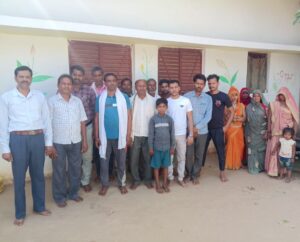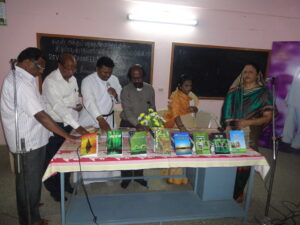Bagheli Project
History of Bagheli
The Bagheli are known as the Rajput (Bagheli), residing primarily in the Baghelkhand region of Madhya Pradesh, India. Their primary language is Bagheli. Their population is approximately 27 Lakhs. The people in Baghelkhand are from different caste groups and tribes and thus do not have a general people group name, although their Bagheli language binds them together. Among Bagheli speakers, scheduled castes, scheduled tribes, backwards classes, and general castes are common. The language of the Baghels spoken in Baghelkhand has been known as Bagheli since the 13th century. Bagheli is a regional language used for intra-group and inter-group communication. It is also known as Baghelkhandi, Rimahi, and Riwai. The primary religion practised by the Bagheli tribe in India is Hinduism.
Food Habits of Bagheli People:
The food is quite simple: roti ‘flatbread’, dal ‘lentil curry’, rice, etc. The majority of Baghels are vegetarian.
Occupation of Bagheli People:
The primary occupations of the Bagheli people include mining and stone quarrying due to the land’s relatively low fertility. They also engage in agricultural pursuits, cultivating crops like rice, wheat, lentils, and beans, supported by the fertile land and existing natural resources. Additionally, some Bagheli people are involved in traditional crafts and other industries.
Bagheli Culture
Social and Cultural Practices of Bagheli People:
The culture of Baghelkhand is a “gramya” culture. It is based on the religious life of the village. Literature, religion, art and songs are important elements of their culture. Twenty-seven of the significant communities living in Baghelkhand have their own different traditional rituals. Caste hierarchy is very important to these groups. The men of this area usually wear dhotis, and the women wear sarees, or, in the villages, the women may also wear dhotis (of saree type) like men. The main festivals of Baghels are Dasahra, Dipavali and Holi. Khajurlaiya-Tiza and the marriage of Tulsi are also celebrated. They practice brath ‘fasting on important occasions such as Chaturdashi, Janmashtami, Bahura-Chaut, Sivratri, Ramnami and Navaratri. All are bound to follow and maintain their beliefs. Marriage ritual focuses on general Indian wedding practices like Tilak, Motimangalya, and Haldi rituals. These rituals include the exchange of gifts, blessings, and applying turmeric paste on the bride and groom.
Education and Christianity:
The Literacy rate of Bagheli-speaking people is 66.09%.
The Christian Population of Bagheli is less than 1%.
IBT Translation Ministry among Bagheli People
Rev. Prof. Panneer Selvam had a vision to give the Bible in the Bagheli Language. He selected the Bagheli translator Mr. Srinivas Saket in 2011, and he underwent Bible Translation training for two months.
- The Gospel of Mark in the Bagheli language was dedicated and released by Rev. Robert Singh and received by IBT translator Mr. Srinivas Saket on 18.05.2013 in the IBT Logos Camp at Salem and distributed to the Bagheli-speaking people.
- The Gospel of Matthew and John in the Bagheli language was dedicated and released by Rev. John Timothy on 02.06.2016 on the Third Memorial Day of Late Rev. Prof. Panneer Selvam, Founder of IBT in Centre, Coimbatore and distributed to the Bagheli-speaking people.
- The New Testament in the Bagheli language is proposed to be released in 2026. The exegetical checking is in progress.
- Financial support of Rs. 1,80,000/- is required to print 1000 copies, which costs Rs. 180/- per Bible approximately.

Indian Bible Translators
14 Ashok Layout,
Civil Aerodrome Road,
Coimbatore – 641 014
- 90470 57414
- 90470 57414
- 0422 - 4520123
- info@ibtword.com
- indianbibletranslators@gmail.com
- Privacy Policy
Donate now by scanning our UPI QR code
through your payment apps.

© Copyright IBT | Designed and Developed by Pixtornet



